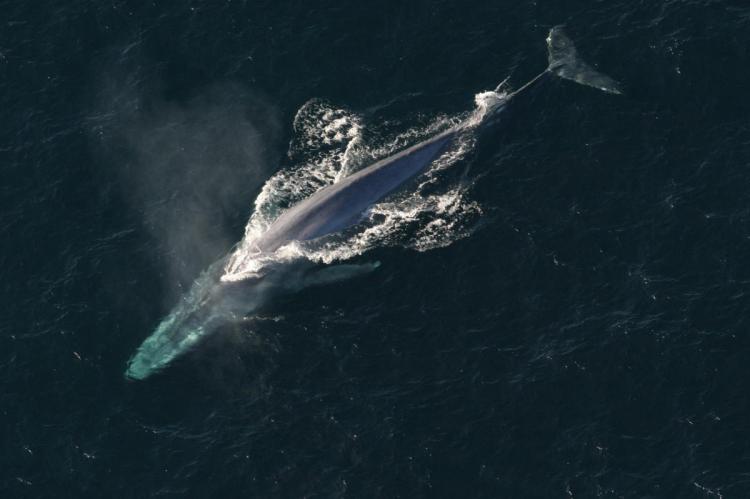Blue Whales flee from sonar noise
Noise from navy sonars may cause whales to alter diving behaviour or temporarily avoid important feeding areas
Scientists working on the Southern California Behavioral Response Study tagged the whales in the California Bight with non-invasive suction cups, which recorded acoustic data and high-resolution movements as the animals were exposed to the controlled sounds.
Using source levels orders of magnitude below some operational military systems, researchers demonstrate that mid-frequency sound can significantly affect blue whale behaviour, especially during deep feeding modes. They exposed the tagged blue whales to simulated mid-frequency (3.5-4 kHz) sonar sounds significantly less intense than the military uses.
The scientists found that some of the whales engaged in deep feeding stopped eating and either sped up or moved away from the source of the noise. Not all of the whales responded to the noise, and not all in the same way.
A related paper published on July 3 by the same research team in Biology Letters has shown clear and even stronger responses of Cuvierâs beaked whales to simulated mid-frequency sonar exposures. Beaked whales showed a variety of responses to both real, military sonar in the distance and nearby simulated sonar. What the beaked whales were doing at the time appeared to be a key factor affecting their reactions.


